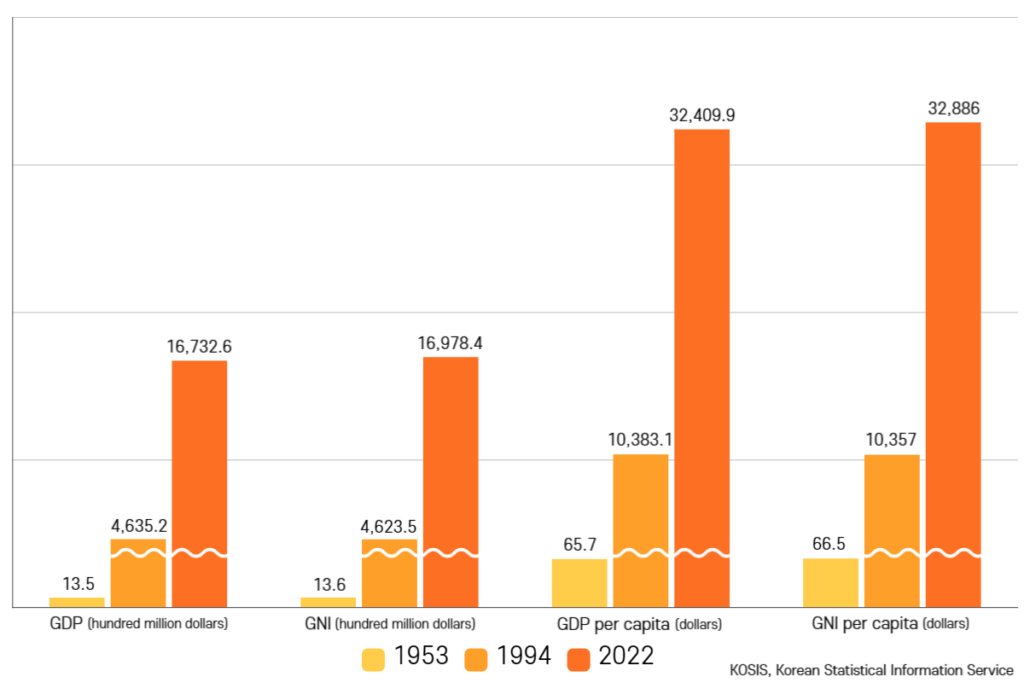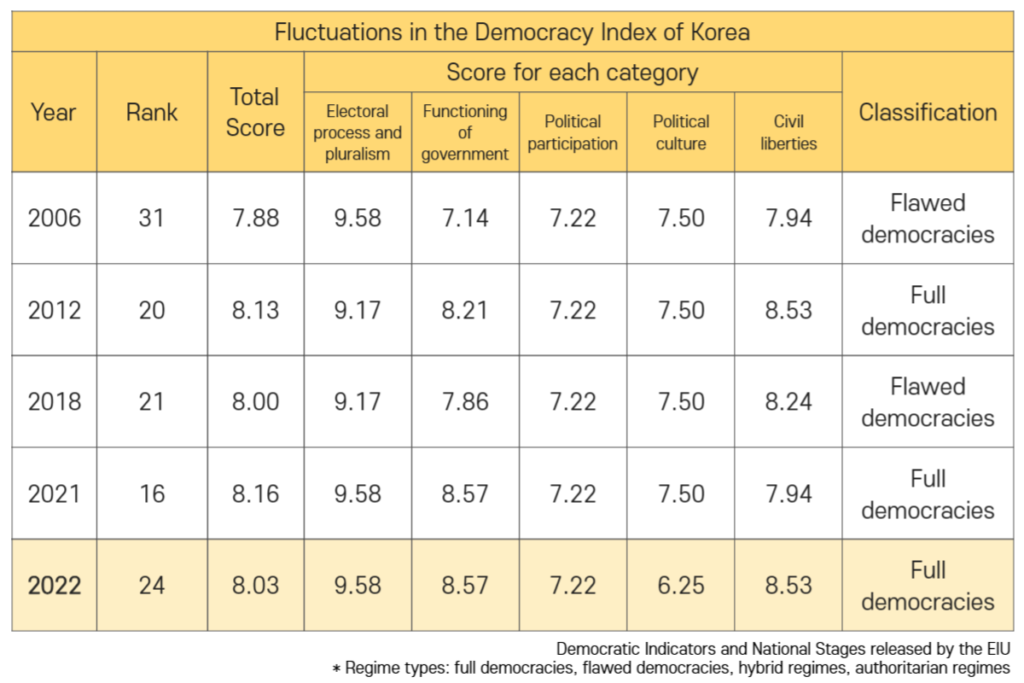Development of Korea
We tell you about the development process of
the economy and politics of Korea,
and introduce to you about the significance in world history of,
the record set by, and the evaluation from the world
about the development of Korea.
The development of the economy and politics of Korea is
a case of progress that is the first as well as one and only in the world.
Korea, once one of the poorest countries in the world, grew
and became the 10th economic powerhouse of the world,
joined the OECD, and considered as a fully democratic
country.
Korea had unfavorable conditions including a small territory,
poor resources, and unstable relations with the DPRK.
Despite this, Korea is the only one among 80 countries that
became independent after WWII that has both achieved
democratization and economic development at the same
level as that of Europe on average, which holds great
significance in the context of world history.
Such a national development came true thanks to the
participation, passion, and sacrifice of the Korean people.
The people did not give in to the dictatorship that ignored
democracy and came out to the streets, took action for
democracy, and set out to establish the foundation of
democracy including a direct presidential election
system.
As a representative of the working people who were
suffering from low wages and long working hours
without even the minimum legal protection during the
process of economic development, Jeon Tae-il sacrificed
his life calling for compliance of the Labor Standards Act.
This became the starting point for the improvement of
working conditions for Korean workers, and based on
such an advanced working condition, the Korean
economy was able to make progress.
Thanks to the people who did not give up while being in
the midst of a dark reality and worked hard more than
anyone else, Korea was able to grow.

Economic development of Korea
Korea is a country – once the poorest in the world after the
war – in which the GNI increased by 400 times and the
exports increased by 3,900 times during 60 years, showing
an unprecedented economic development.
Right after the Korean War, Korea was a country that had to
rely on the aid of other nations, with a GDP of just 67 dollars.
However, Korea experienced a high level of economic
development from the 1960s to the 1980s, and achieved
results such as surpassing 10,000 dollars in GDP (1994),
joining the OECD (1996), accomplishing 1 trillion dollars
in trade volume as the 9th in the world (2011).
As of 2022, the GNI per capita of Korea is 32,886 dollars and
the GDP is 1.673 trillion dollars – coming at 13th place in the
world – and the trade volume of Korea is ranked 6th in the
world.
The first records set by Korea
- The first nation that became ‘a country that gives aid’ from ‘a country that receives aid’
: Joining the OECD Development Assistance Committee (DAC) in 2009
- Joining the 20K-50M Club (GNI per capita 20,000 dollars, population 50 million) in 2012,
joining the 30K-50M Club (GNI per capita 30,000 dollars, population 50 million) in 2018
: joined it 7th in the world, only Korea joined it among the countries that became independent after WWII

Political development of Korea
Korea is a country that established democracy in just a few decades; the same process took centuries in the Western society.
After liberation, for the first time in Korean history, the Constitutional Assembly was formed through the general election on May 10th, 1948, and on August 15th, the Korean government was established.
In the Western society, it took centuries for democracy to be established; but in Korea, democracy was introduced urgently after the liberation.
The Korean people did not know well about democracy, and the foundation of democracy in Korea was very vulnerable.
However, thanks to the participation and sacrifice of people with the democratization movement that fought against dictatorship, such as the April 19th Revolution and the June 10th Democratic Struggle, democracy was established in Korea.
As of statistics that can be used to check the level of democracy, there is The Democracy Index, an expert assessment and index by the Economist Intelligence Unit (EIU), a research and analysis division of The Economist (Britain’s weekly business and politics newspaper).
According to statistics announced by the EIU, the democracy index of Korea is identical to the average of countries in the European Union (EU), and Korea has entered ‘full democracies’ country, which is the highest among four evaluation indices.

